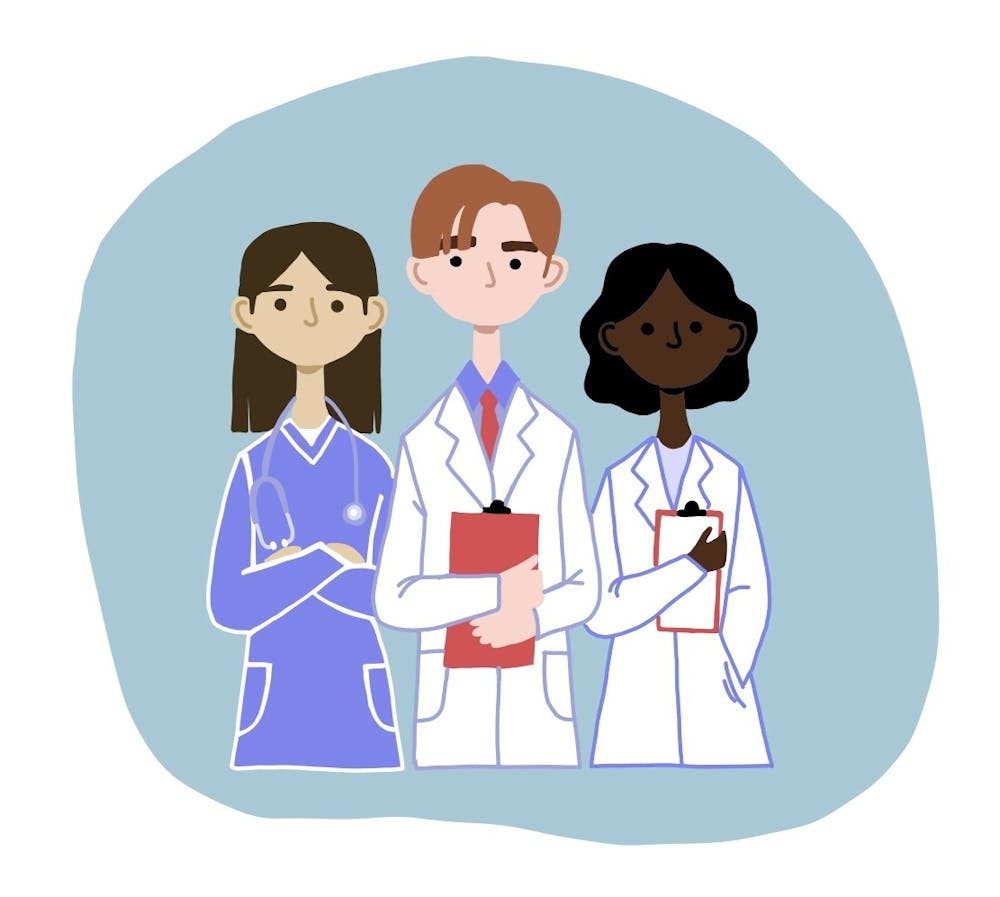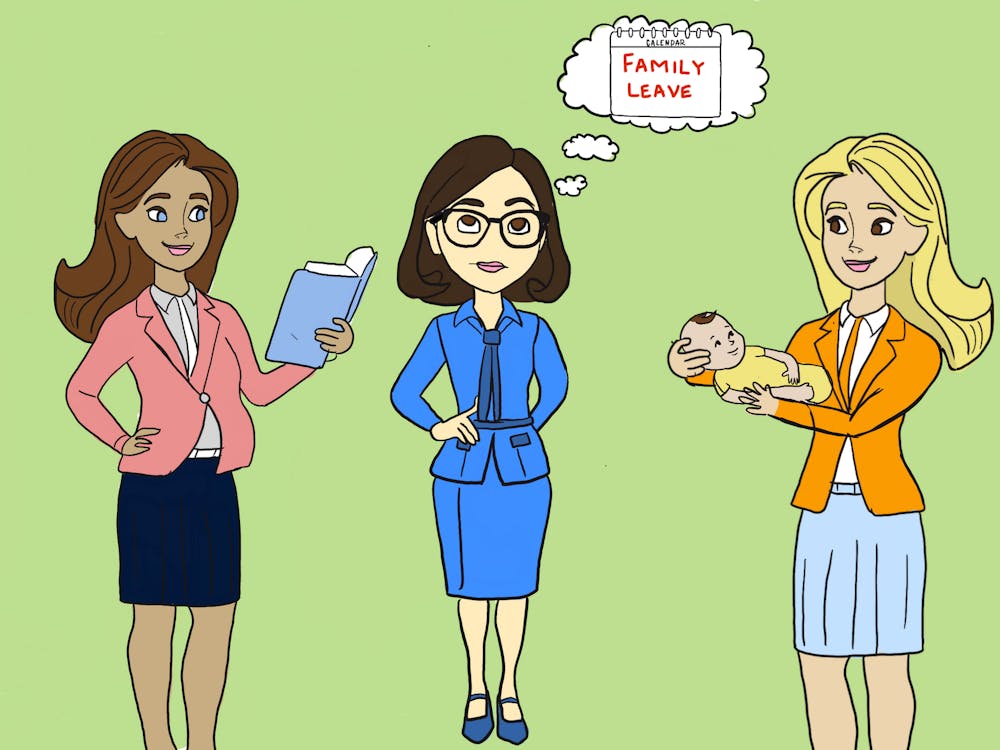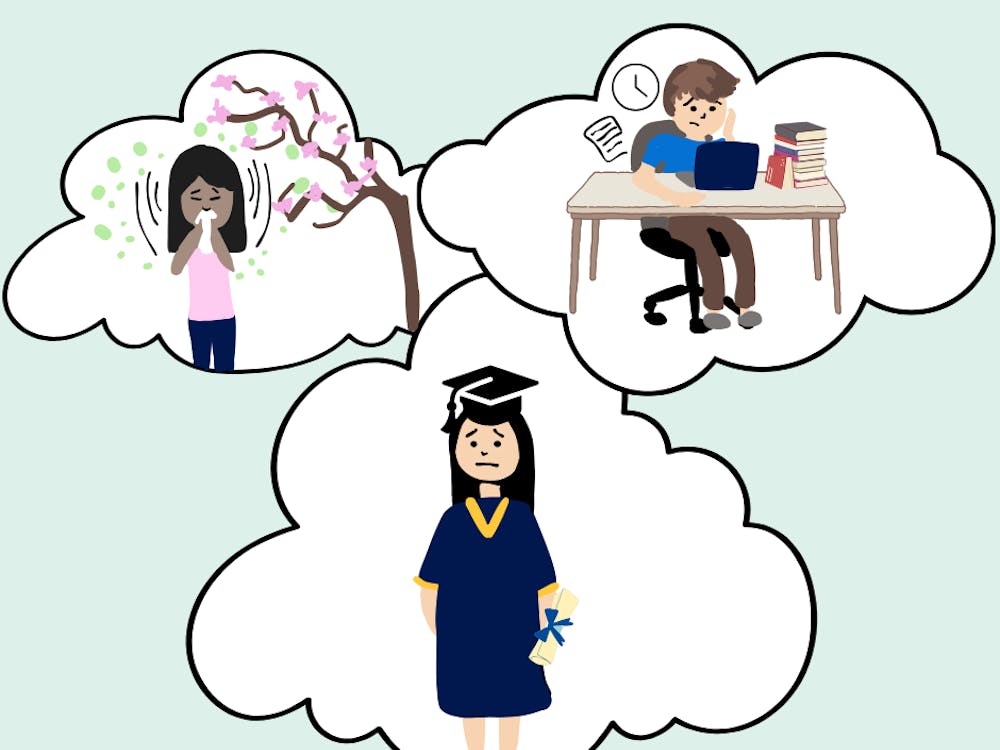Rising third-year Nursing student Phillip Phan pursued nursing to give back to the medical community that had treated his father with compassion and respect after he was diagnosed with kidney failure. Phan was motivated by his desire to heal, to help and to care about people.
“I wanted to give back to the community or the world in the way that I felt had been given to my dad,” Phan said.
However, nursing students like Phan have had to face the realities of their future career. As COVID-19 has spread across the world, nurses have been at the forefront of the pandemic, placing them in a particularly vulnerable situation. As essential figures, nurses are tasked with managing risk, directing care plans and spending the most time with COVID-19 patients, in addition to other responsibilities. Yet, despite this significant role, nurses have often lacked the critical protective equipment needed to work and interact safely with COVID-19 patients. According to a survey conducted in April by the Service Employees International Union, 82 percent of nurse respondents said they did not have enough protective equipment to safely protect themselves and care for patients. For nursing students, this lack of safety is seriously concerning.
“A lot of my classmates just talked about their fears going into nursing and that we didn’t sign up … to put [ourselves] in danger without the hospitals providing PPE,” rising third-year Nursing student Kelly Le said.
Rising fourth-year Nursing student Emily McClung also expressed concerns about the future of the nursing field. McClung believes that another pandemic is bound to happen, and she emphasized the importance of speaking out now and advocating for safety in the healthcare field. McClung voiced that the U.S. must understand and learn from the inadequate protection for healthcare workers and slow government response during COVID-19. If not, she worries she will have to work in a similarly underprotected state in the next pandemic.
“I’m definitely scared that if there’s not enough emphasis on protecting healthcare professionals now then we won’t be necessarily protected in the next pandemic,” McClung said.
Although nursing students have not necessarily worked as full-time nurses during this crisis, the pandemic has also brought other troubling truths — like overworking and mental trauma — to light. For example, hundreds of nurses have posted videos and images of their faces after finishing a workday of exhausting shifts in the era of COVID-19. The N95 masks that nurses wear — which are typically reused every day in hospitals facing PPE shortages — often leave bruises on their faces, which are just some of the physical marks of the overwork and stress that the pandemic has caused. Rising fourth-year Nursing student Peyton Burrow said she wore the mask for 15 minutes during a shift at the University Hospital over spring break, which she completed as part of her 52-hour semester requirement. Just 15 minutes was enough for her to feel uncomfortable.
“When you put [the N95 mask] on, it feels like you’re trying to [breathe] with a comforter over your nose and mouth,” Burrow said. “It can be claustrophobic at times because it does make breathing harder, but it’s a lot easier than breathing with a respiratory disease that tears your lungs up … I can’t imagine a whole day with the same mask on.”
Additionally, some students, including McClung, have commented on how the videos portray a powerful, yet disturbing depiction of the current work environment for nurses.
“[The videos] were pretty upsetting,” McClung said. “It really shows the reality of hard work the nurses are putting in.”
Le hopes that the increased attention and recognition nurses are currently receiving — such as through the aforementioned videos — will help elevate the status of the nursing field in the public eye.
“Nurses really bring the best quality of care to patients and really advocate for patients, and some people have the misconception that nursing is doing whatever the doctor tells you to do or just doing really small tasks,” Le said.
Rising third-year Nursing student Alyssa Gail Valencia explained that the public tendency to view nurses as “under the doctor” and as individuals who “just fluff pillows” has stemmed from the original role of the nurse — those who “literally did follow doctor’s orders.”
“Some of the first nursing … textbooks were literally saying, ‘Listen to what the doctor’s saying,’ ‘Do not disrespect your doctor’ and ‘Make sure you follow through with his orders,” Valencia said. “Obviously with time this has changed as the career has become more autonomous, but it’s hard to change perception over time.”
Similar to Le, Valencia believes the pandemic will disrupt common stereotypes of the nursing field.
“Prior to this, a lot of people thought nursing was a safe, stable or even easy job, and I think [the pandemic] will change how people perceive the nursing career to be,” Valencia said.
Moreover, rising third-year Nursing student Allison Kim hopes that people will be more understanding and empathetic towards those in her future career. Some individuals around the country have dismissed nurses’ complaints about their current work conditions, citing the fact that they “signed up for this” when they joined the professional field. However, Kim was quick to note that nurses today are working under unusually tense conditions, resulting from staff shortages, supply shortages and the general danger of a new disease. During this time, Kim said it’s important to remember nurses are just people too.
“It’s so easy to just see [nurses] working at the hospital and being like, ‘Oh, these are professionals, their role is in this setting as a healthcare professional,’ but there’s a life story behind them,” Kim said. “I wish people could just take a moment and remember that the next time they see someone from the healthcare side.”
Beyond changing the public image of the nursing field, McClung believes the pandemic will cause a radical shift in how nursing students are taught. Specifically, McClung thinks the curriculum in nursing schools will adjust to heavily emphasize risk prevention from diseases. The nursing education already stresses skills like creating a sterile environment and how to “don and doff” — or safely put on and take off — PPE. Even so, McClung expects these topics to be more emphasized.
“They’re going to pound [these topics] into us, so we can regurgitate [this information] in our sleep,” McClung said.
Le agreed that the current concerns brought up in the nursing field can feel disheartening. Concurrently, Burrow said nurses are needed now more than ever, and students like Kim are motivated “to go out there and make some change.” Burrow advises incoming Nursing students or those interested in the nursing field to take initiative and be proactive.
“Really pay attention in class, learn how to protect yourself and learn how to protect your friends,” Burrow said. “This isn’t going to be an easy experience for anyone, but if you’re educated and know how to teach people, it’ll help so much.”
Personally, Burrow described feeling a mix of both pride and fear towards her future profession, which she enters next year.
“I’m absolutely terrified and extremely proud at the exact same time,” Burrow said. “It’s going to mean that when I go work in the hospital — wherever I work — I’m going to have to be prepared to put anybody I interact with after work at risk if I’m not careful with my own safety and protective equipment … It’s always like you have to protect yourself and you can’t protect other people if you yourself are not safe.”
Overall, Nursing students described feeling “inspired,” “invigorated” and full of admiration for nurses, especially for those who are working on the frontlines of the pandemic. Phan noted that, though nurses have been recognized as heroes in the media, it does not often feel like nurses have been treated as such, due to inadequate protection and support. Nevertheless, Phan feels that “[nurses] are really heroes.”
“I want to be a hero for other people too and help save lives and impact the world, even if it’s in a small or unknown way,” Phan said.







